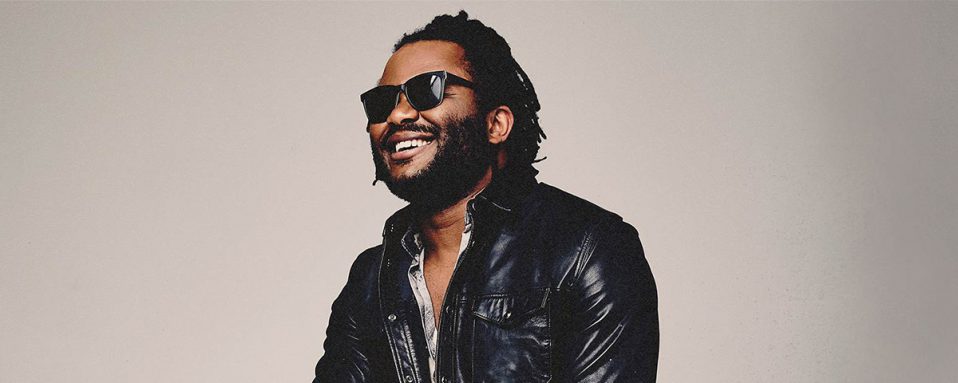By: By: Jess Drummond
Singer-songwriter Blessing Offor has a remarkable story to tell.
Born in Nigeria with almost complete blindness in his left eye, Blessing moved to the United States at the age of six with his uncle, in the hopes of receiving optimal medical care and recovering some of his vision.
At the age of 10, a playtime incident with a water gun saw him lose sight in his right eye. Undeterred by these significant challenges, he has used his musical gifts to encourage and inspire others.
Alongside his own music career, he’s also become one of Nashville’s go-to songwriters, racking up writing credits with artists such as Chris Tomlin, Ed Cash and Tyler Hubbard (Florida Georgia Line).
Blessing told me that his outlook has been shaped not only by the trials he has overcome, but also the experiences of living in several different places.
“The perspective of being from Nigeria, coming to America, growing up in Connecticut, coming to Nashville, living in New York, living in LA – it’s a melting pot inside of one brain,” Blessing says.
“Personally, I like that given any subject matter, I feel like I tend to think of things a little differently.”
Blessing attributes his uniquely global perspective to his embodiment of ‘third culture’, where a person is born in one place and grows up in another, melding aspects of both cultures into one.
“There’s a bunch of me that is perfectly Connecticut and American, and then a bunch of me that’s perfectly Nigerian, and I don’t feel the need to give up or give in or compromise on any of those things – it’s a ‘both-and’ instead of an ‘either-or’.”
Blessing also brings his varied cultural experiences into his reflections on faith and gratitude.
“When I think about Christianity, I think about growing up in Nigeria and being a Christian in a mostly Muslim country, and when I think of everything happening in America, I think about it from so many different perspectives. When you think of suffering, even [latest single] “Brighter Days”, this optimism that is so naturally in me is because I grew up in a place where people were happy with very little.”
Blessing says “Brighter Days” was inspired by his love of telling people that “it’s gonna be alright – not because the world isn’t painful or disappointing, but because through the pain and disappointment, it’s still gonna be alright; circumstances don’t have to define what ‘alright’ means.
“That is something I’ve learned first-hand and I think it’s the kind of thing that gives you an unshakeable foundation – circumstances come and go, happiness comes and goes, but joy is a deeper concept.”
Blessing says he considers his life and his blindness to be gifts, but not in a way that belittles the struggle.
“When you come out of a difficult thing… if you let it work in you enough, you find that what you glean after the difficulty, is worth the difficulty.”
“To have the perspective I do is something I would not trade for the world, and in order to have that perspective I had to go through some difficult things. It’s not to say that the things weren’t difficult, but it’s just to say that when you come out of a difficult thing, oftentimes if you let it work in you enough, you find that what you glean after the difficulty is worth the difficulty.”
Blessing’s hope is that listeners to “Brighter Days” will feel that they’re not alone and that somebody understands them.
“Pain is real, but not as real as hope and optimism and joy.”
Article supplied with thanks to 96five.
Feature image: by Robbie Klein




